 W
WParliamentary elections were held in Croatia on 29 October 1995 to elect the 127 members of the Chamber of Representatives. The result was a victory for the Croatian Democratic Union, which won 75 seats, an absolute majority. Therefore, this was the last election to date in which a single party won enough seats to govern alone, without the need for parliamentary support from pre-election or post-election coalition partners. Voter turnout was 68.8%.
 W
WThe General Framework Agreement for Peace in Bosnia and Herzegovina, also known as the Dayton Agreement or the Dayton Accords, is the peace agreement reached at Wright-Patterson Air Force Base near Dayton, Ohio, United States, on 21 November 1995, and formally signed in Paris, on 14 December 1995. These accords put an end to the 3 1⁄2-year-long Bosnian War, one of the Yugoslav Wars.
 W
WThe Erdut Agreement, officially the Basic Agreement on the Region of Eastern Slavonia, Baranja and Western Sirmium, was an agreement reached on 12 November 1995 between the authorities of the Republic of Croatia and the local Serb authorities of the Eastern Slavonia, Baranja and Western Syrmia region on the peaceful resolution to the Croatian War of Independence in eastern Croatia. It initiated process of peaceful reintegration of the region to the central government control and provided set of guarantees on minority rights and refugee return. It was named after Erdut, the village in which it was signed.
 W
WOperation Flash was a brief Croatian Army (HV) offensive conducted against the forces of the self-declared proto-state Republic of Serbian Krajina (RSK) from 1–3 May 1995. The offensive occurred in the later stages of the Croatian War of Independence and was the first major confrontation after ceasefire and economic cooperation agreements were signed between Croatia and the RSK in 1994. The last organised RSK resistance formally ceased on 3 May, with the majority of troops surrendering the next day near Pakrac, although mop-up operations continued for another two weeks.
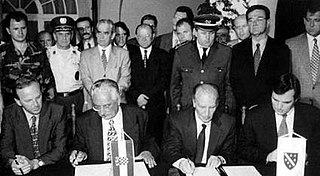 W
WThe Split Agreement or Split Declaration was a mutual defence agreement between Croatia, the Republic of Bosnia and Herzegovina and the Federation of Bosnia and Herzegovina, signed in Split, Croatia on 22 July 1995. It called on the Croatian Army (HV) to intervene militarily in Bosnia and Herzegovina, primarily in relieving the siege of Bihać.
 W
WOperation Storm was the last major battle of the Croatian War of Independence and a major factor in the outcome of the Bosnian War. It was a decisive victory for the Croatian Army (HV), which attacked across a 630-kilometre (390 mi) front against the self-declared proto-state Republic of Serbian Krajina (RSK), and a strategic victory for the Army of the Republic of Bosnia and Herzegovina (ARBiH). The HV was supported by the Croatian special police advancing from the Velebit Mountain, and the ARBiH located in the Bihać pocket, in the Army of the Republic of Serbian Krajina's (ARSK) rear. The battle, launched to restore Croatian control of 10,400 square kilometres of territory, representing 18.4% of the territory it claimed, and Bosnian control of Western Bosnia, was the largest European land battle since the Second World War. Operation Storm commenced at dawn on 4 August 1995 and was declared complete on the evening of 7 August, despite significant mopping-up operations against pockets of resistance lasting until 14 August.
 W
WThe United Nations Confidence Restoration Operation in Croatia, commonly abbreviated UNCRO, was a United Nations (UN) peacekeeping mission in Croatia. It was established under Chapter VII of the United Nations Charter and approved by the UN Security Council (UNSC) Resolution 981 on 31 March 1995. UNCRO inherited personnel and infrastructure from the United Nations Protection Force (UNPROFOR). Its command was located in Zagreb; the peacekeeping troops were deployed in four sectors named North, South, East, and West. Twenty different countries contributed troops to the mission.
 W
WUnited Nations Security Council resolution 981, adopted unanimously on 31 March 1995, after reaffirming all resolutions on the situation in the former Yugoslavia, the Council established the United Nations Confidence Restoration Operation in Croatia (UNCRO) for a period terminating 30 November 1995.
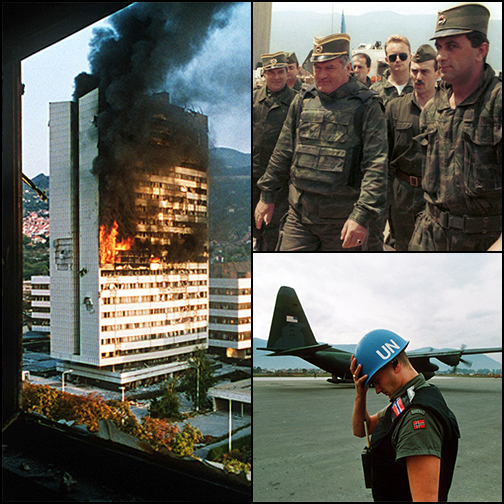 W
WUnited Nations Security Council resolution 988, adopted on 21 April 1995, after reaffirming all resolutions on the situation in the former Yugoslavia, in particular resolutions 943 (1994) and 970 (1995), the Council noted measures by the Federal Republic of Yugoslavia to continue the border closure with Bosnia and Herzegovina and therefore extended the partial suspension of sanctions against Serbia and Montenegro for a further 75 days until 5 July 1995.
 W
WUnited Nations Security Council resolution 990, adopted unanimously on 28 April 1995, after reaffirming all resolutions on the conflicts in the former Yugoslavia, particularly resolutions 981 (1995) and 982 (1995), the Council, acting under Chapter VII of the United Nations Charter, authorised the deployment of the United Nations Confidence Restoration Operation in Croatia (UNCRO).
 W
WUnited Nations Security Council resolution 994, adopted unanimously on 17 May 1995, after reaffirming all resolutions on the conflicts in the former Yugoslavia, particularly resolutions 981 (1995), 982 (1995) and 990 (1995), the Council discussed the withdrawal of Croatian Army from the zone of separation and the full deployment of the United Nations Confidence Restoration Operation in Croatia (UNCRO).
 W
WUnited Nations Security Council resolution 1009, adopted unanimously on 10 August 1995, after recalling all resolutions on the situation in the former Yugoslavia including resolutions 981 (1995), 990 (1995) and 994 (1995), the Council demanded that the Government of Croatia strictly observe Security Council resolutions after an offensive by the Croatian Army began on 4 August 1995.
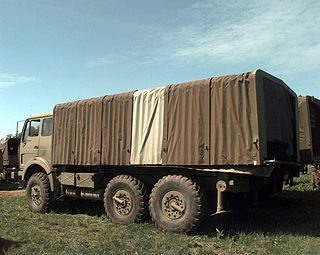 W
WUnited Nations Security Council Resolution 1021, adopted on November 22, 1995, after recalling all resolutions on the situation in the former Yugoslavia, particularly resolutions 713 (1991) and 727 (1992), the Council set a date of March 13, 1996, for the suspension of most aspects of the arms embargo on the former Yugoslavia. Resolution 1074 (1996) terminated the remaining measures of the embargo.
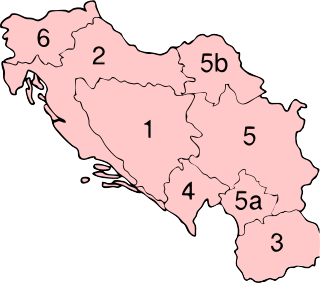 W
WUnited Nations Security Council resolution 1022, adopted on 22 November 1995, after recalling all resolutions on the conflicts in the former Yugoslavia, the Council suspended measures in previous resolutions related to the former Yugoslavia.
 W
WUnited Nations Security Council resolution 1023, adopted unanimously on 22 November 1995, after recalling all resolutions on the conflicts in the former Yugoslavia, the Council noted the "Basic Agreement on the Region of Eastern Slavonia, Baranja and Western Sirmium" between the Government of Croatia and local Serb representatives.
 W
WUnited Nations Security Council resolution 1025, adopted unanimously on 30 November 1995, after recalling resolutions 981 (1995) and 1023 (1995) on Croatia, the Council decided that the mandate of the United Nations Confidence Restoration Operation (UNCRO) would terminate after an interim period ending 15 January 1996.
 W
WOperation Winter '94 was a joint military offensive of the Croatian Army (HV) and the Croatian Defence Council (HVO) fought in southwestern Bosnia and Herzegovina between 29 November and 24 December 1994. The operation formed part of the Croatian War of Independence and the Bosnian War fought between Bosnia and Herzegovina, Croatia and two unrecognized para-states proclaimed by Croatian Serbs and Bosnian Serbs. Both para-states were supported by the Yugoslav People's Army (JNA) and Serbia. The JNA pulled out in 1992, but transferred much of its equipment to the Bosnian Serb and Croatian Serb forces as it withdrew.
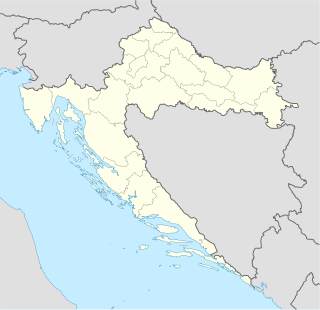 W
WThe Z-4 Plan was a proposed basis for negotiations to end the Croatian War of Independence with a political settlement. It was drafted by Peter W. Galbraith, Leonid Kerestedjiants and Geert-Hinrich Ahrens on behalf of a mini-Contact Group comprising United Nations envoys and diplomats from the United States, Russia and the European Union. The co-chairs of the International Conference on the Former Yugoslavia, David Owen and Thorvald Stoltenberg, were closely involved in the political process surrounding the plan. The document was prepared in the final months of 1994 and early 1995 before being presented to Croatian President Franjo Tuđman and the leaders of the self-declared Republic of Serbian Krajina (RSK) on 30 January 1995. Tuđman was displeased with the proposal, but accepted it as a basis for further negotiations. However, the RSK authorities even refused to receive the document before UNPROFOR mandate status was resolved. According to later reactions, RSK leadership was not satisfied with the plan.
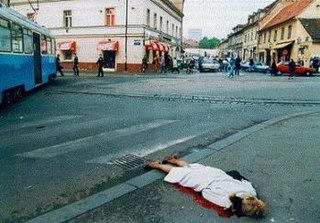 W
WThe Zagreb rocket attacks were a series of two rocket attacks conducted by the Army of the Republic of Serbian Krajina that used multiple rocket launchers to strike the Croatian capital of Zagreb during the Croatian War of Independence. The attack killed seven and wounded over 200 Croatian civilians and was carried out on 2 May and 3 May 1995 as retaliation for the Croatian army's offensive in Operation Flash. The rocket attacks deliberately targeted civilian locations. Zagreb was the largest of several cities hit by the attack. It was the only instance in the entire war in Croatia that cluster bombs were used in combat.